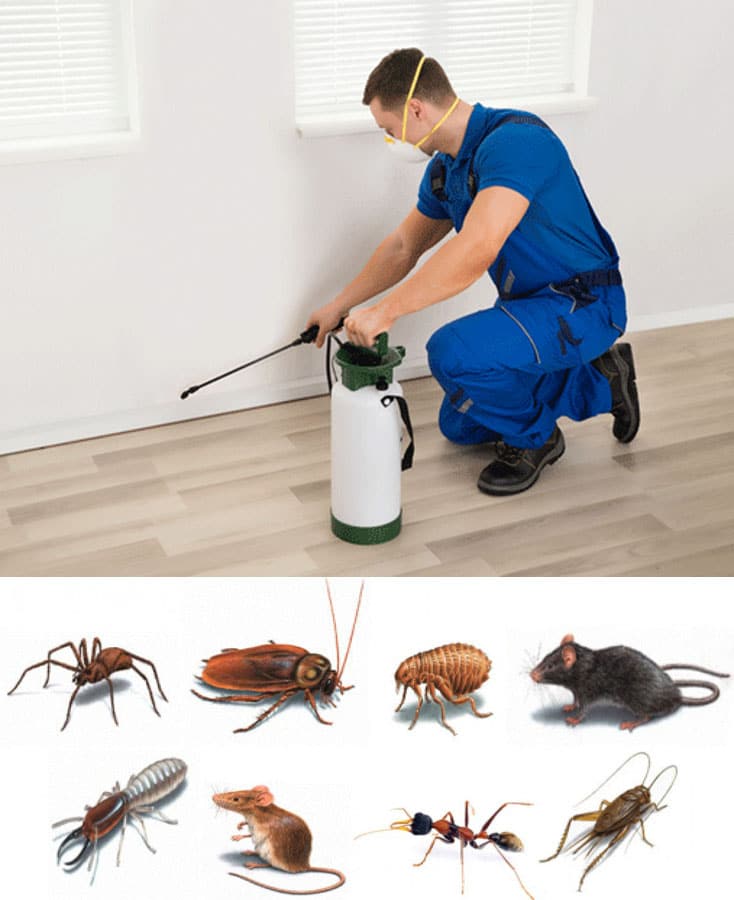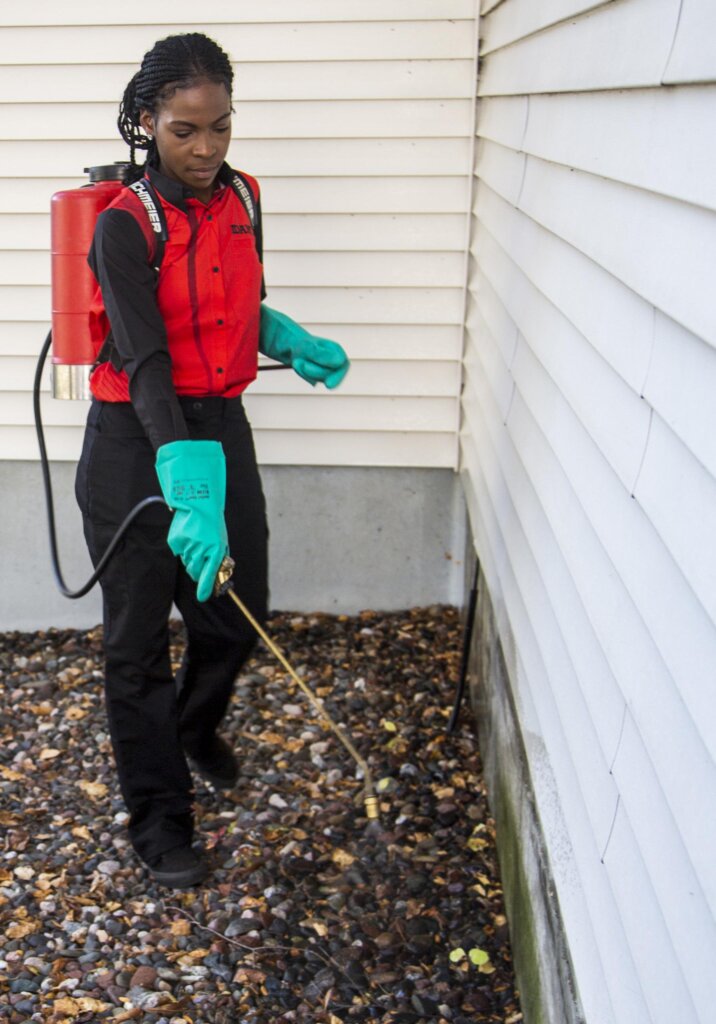What to Expect from King Pest Control Companies When Managing Severe Invasions
What to Expect from King Pest Control Companies When Managing Severe Invasions
Blog Article
The Ultimate Overview to Eco-Friendly Insect Removal Methods for Sustainable Living
In the realm of lasting living, the mission for efficient yet environmentally friendly pest control techniques is a paramount problem for numerous diligent people. In this overview, we will certainly explore a variety of eco-friendly bug elimination strategies that not just address pest problems but also maintain the concepts of sustainability.
Natural Repellents
When seeking green pest elimination approaches, using natural repellents can be a sustainable and highly effective approach. All-natural repellents are compounds acquired from plants, minerals, or various other naturally occurring resources that discourage pests without creating harm to the environment, humans, or non-targeted wildlife. These repellents work by emitting scents or creating preferences that bugs discover undesirable, driving them away from the area. Common natural repellents consist of necessary oils like tea, citronella, and peppermint tree oil, in addition to materials like diatomaceous earth, vinegar, and chili powder.
Furthermore, natural repellents are commonly readily available, budget-friendly, and very easy to utilize, making them obtainable to a broad range of individuals looking to deal with parasite problems in an environmentally friendly way. By including all-natural repellents right into pest monitoring strategies, individuals can efficiently control pests while promoting sustainability and eco-conscious practices.
Beneficial Pests
Beneficial insects play a critical function in keeping eco-friendly balance and sustaining sustainable pest monitoring methods. These pests are natural killers of several typical garden parasites, assisting to keep their populations in check without the demand for dangerous chemicals. Ladybugs, for instance, are starved customers of aphids, termites, and various other soft-bodied bugs that can harm plants. Lacewings are an additional advantageous insect that feeds on aphids, caterpillars, and various other devastating insects - King Bed bug exterminator cincinnati.
Introducing advantageous insects to your garden can help in reducing the need for artificial chemicals, promoting a more environment-friendly and lasting technique to pest control. By attracting these all-natural predators through making use of companion planting, offering ideal environments, and staying clear of using chemical insecticides that harm both insects and helpful pests, you can create a well balanced ecological community where bugs are managed naturally. Urging biodiversity in your garden by inviting valuable bugs not just assists safeguard your plants however also adds to the overall health of the setting.
Mechanical Traps
In the world of environmentally friendly insect removal techniques, one effective technique includes the usage of mechanical catches. These traps are created to capture parasites without the use of harmful chemicals, making them a risk-free and eco-friendly alternative for insect control. Mechanical catches come in different types, consisting of snap traps, live traps, and digital traps, each serving a details purpose in pest elimination.
Break catches are commonly made use of for rats like rats and mice. They include a spring-loaded device that snaps closed when caused by the pest, supplying a fast and gentle death. Live catches, on the various other hand, are developed to catch parasites to life so they can be released back into the wild unharmed. These traps are suitable for larger pests like raccoons or squirrels.

Organic Controls
The use of all-natural predators or pathogens to manage parasite populations is a sustainable and ecologically mindful strategy called organic controls. By utilizing the power of nature's own checks and balances, organic useful reference controls use a targeted and efficient technique of pest management without using dangerous chemicals.
One usual form of organic control is the introduction of all-natural predators to battle bug populaces. Ladybugs are typically released into gardens to manage aphids, while specific species of wasps are used to manage caterpillar problems. These predators eat the bugs, assisting to normally regulate their numbers and lower damage to crops.
Another biological control technique involves making use of virus such as fungi, germs, or viruses to contaminate and kill parasites. These microorganisms specify to the target bug and do not harm other advantageous organisms or the atmosphere. Bacillus thuringiensis (Bt) is a normally occurring dirt germs that is used to regulate caterpillars and particular kinds of beetles.
Eco-Friendly Pesticides
Utilizing environmentally safe chemicals is important in keeping a balance in between effective pest control and eco-friendly sustainability. Eco-friendly pesticides, also known as natural pesticides, are originated from all-natural resources and created to target certain parasites while lessening injury to beneficial insects, pets, and the setting (King pest exterminator). These chemicals are created to damage down quickly, decreasing the risk of polluting dirt and water resources
One usual eco-friendly chemical is neem oil, extracted from the seeds of the neem tree, which functions as a repellent, over at this website antifeedant, and disruptor of insect development. An additional natural option is diatomaceous planet, a powder made from fossilized algae that harms the exoskeletons of insects. Furthermore, insecticidal soaps and oils derived from plants like peppermint, thyme, or rosemary can properly manage parasites like aphids, caterpillars, and termites.

Conclusion

In this overview, we will check out a range of green pest elimination techniques that not only address pest problems but also support the concepts of sustainability. By integrating natural repellents into insect management methods, people can properly regulate insects while advertising sustainability and eco-conscious practices.
By drawing in these natural killers through the use of companion planting, giving appropriate environments, and staying clear of the usage of chemical pesticides that damage both pests and useful pests, you can develop a well balanced ecological community where parasites are regulated normally. These traps are developed to catch insects without the use of harmful chemicals, making them a risk-free and eco friendly alternative for parasite control. By utilizing natural repellents, valuable insects, mechanical traps, biological controls, and environmentally friendly pesticides, individuals can successfully manage bug populaces without hurting the setting.
Report this page